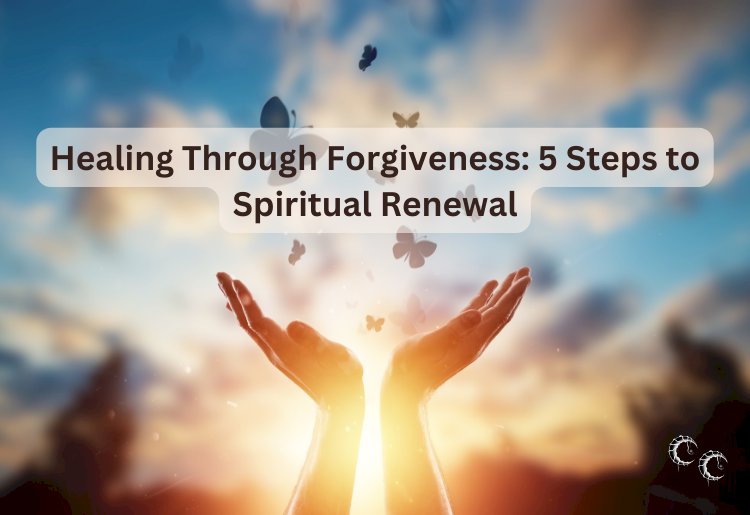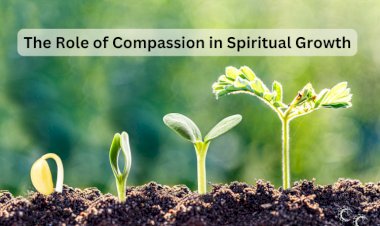Healing Through Forgiveness: 5 Steps to Spiritual Renewal

Forgiveness is a profound act of spiritual renewal—a journey of releasing resentment, anger, and pain, and opening our hearts to healing, compassion, and freedom. While forgiveness can be challenging, especially in the face of deep hurt or betrayal, it holds the power to transform our lives and set us free from the chains of the past. In this article, we'll explore five steps to healing through forgiveness and experiencing spiritual renewal:
-
Acknowledge the Pain: The first step in the healing process is to acknowledge the pain and wounds that have been inflicted upon us. Take time to honor your feelings and emotions, allowing yourself to fully experience the depth of your hurt, anger, and sadness. By acknowledging the pain, you create space for healing and transformation to take place.
-
Cultivate Compassion: Once you've acknowledged your pain, cultivate compassion for yourself and others involved in the situation. Recognize that everyone is human and flawed, and that hurtful actions often stem from their own pain and suffering. Practice self-compassion by offering yourself kindness and understanding, and extend compassion to those who have caused you harm, recognizing their humanity and capacity for growth.
-
Shift Your Perspective: Shift your perspective from victimhood to empowerment by reframing the situation through the lens of forgiveness. Instead of seeing yourself as a victim of circumstances, recognize that forgiveness is a choice—a choice to reclaim your power, dignity, and freedom. Understand that forgiveness is not about condoning or excusing the actions of others, but rather about releasing yourself from the burden of resentment and reclaiming your inner peace and sovereignty.
-
Release Resentment: Let go of resentment, anger, and bitterness by consciously choosing to forgive. This may involve making a decision to forgive, even if you don't yet feel ready or fully healed. Remember that forgiveness is a process, and that it may take time to fully release the pain and wounds of the past. Practice forgiveness rituals or techniques, such as writing a forgiveness letter or engaging in meditation or prayer, to facilitate the healing process and release any lingering resentment or anger.
-
Embrace Healing and Renewal: Finally, embrace the healing and renewal that comes with forgiveness. Allow yourself to experience the freedom and liberation that forgiveness brings, as you let go of the past and open your heart to new possibilities and experiences. Cultivate a sense of gratitude for the lessons learned and the growth that has emerged from the experience, knowing that forgiveness is a powerful catalyst for spiritual renewal and transformation.
In conclusion, healing through forgiveness is a journey of courage, compassion, and spiritual renewal. By acknowledging our pain, cultivating compassion, shifting our perspective, releasing resentment, and embracing healing and renewal, we can experience the profound liberation and transformation that forgiveness brings. As we open our hearts to forgiveness, we reclaim our power, restore our inner peace, and embark on a journey of spiritual growth and renewal that leads us towards greater wholeness, harmony, and fulfillment.






























